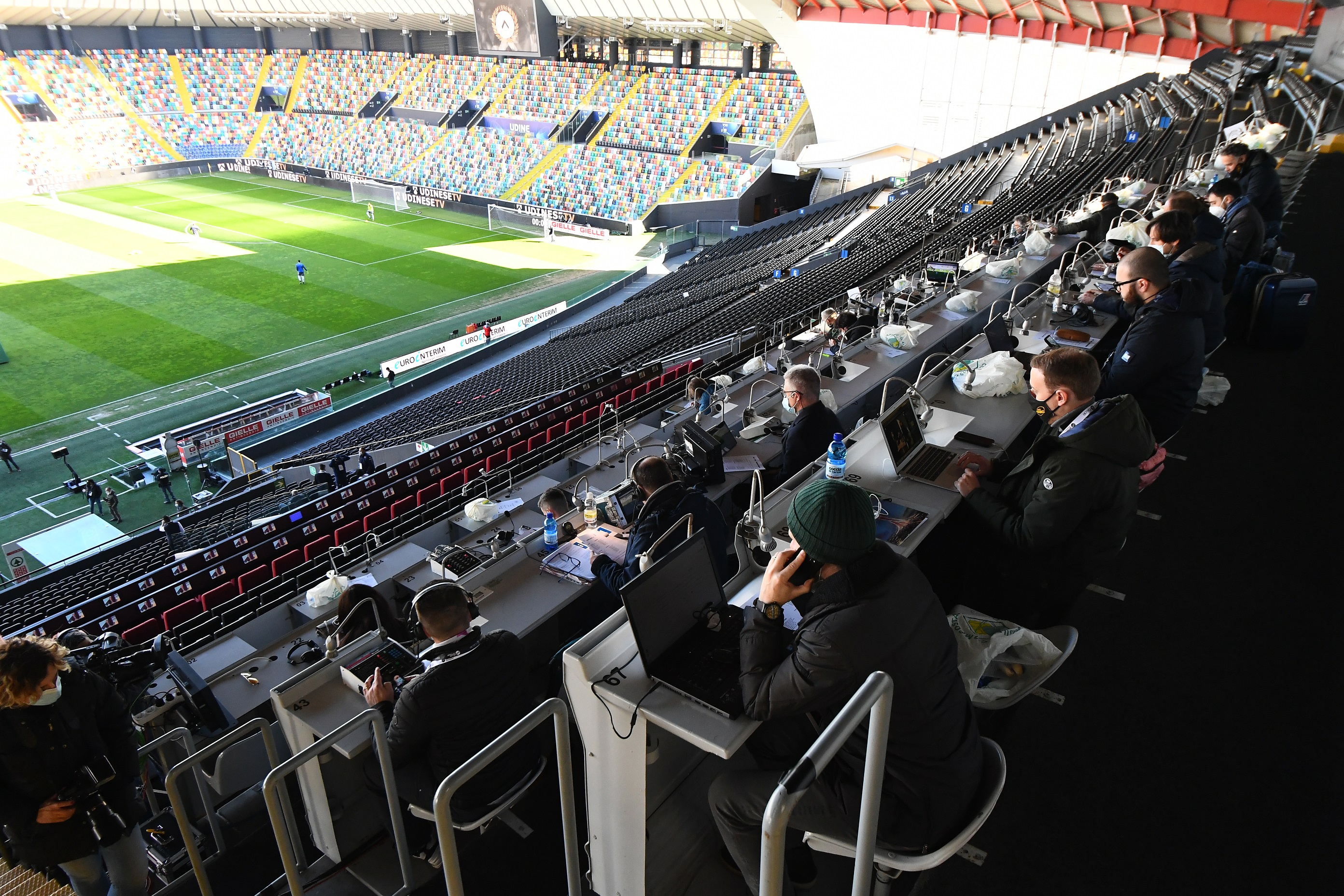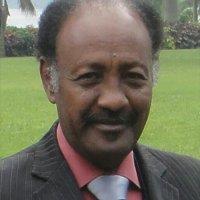قبل ما يقارب 14 عامًا، وتحديدًا في 2 آب/ أغسطس 2007، سجلت صحيفة قوون الرياضية السودانية معدل توزيع بلغ 120 ألف نسخة ورقية، وشكل هذا المعدل طفرة على كل المستويات، حتى للصحيفة نفسها. كما مثل رقمًا قياسيًا هو الأعلى في تاريخ توزيع الصحف الرياضية، بل ربما يعد من أعلى معدلات التوزيع للصحف السودانية على اختلاف تخصصاتها.
أما سبب الطفرة في التوزيع، فهو تسجيل فريق الهلال السوداني الفوز على ضيفه الأهلي المصري بثلاثة أهدافٍ دون مقابل في منافسات دوري أبطال أفريقيا، وتصدره لمجموعته. إنه واقعٌ يجسد العلاقة الجدلية بين الصحافة الرياضية وكرة القدم في السودان.
تميزت صحيفة قون بأنها الأكثر استقرارًا وانتشارًا بين الصحف الرياضية وفق الإحصائيات، وذلك منذ صدورها في أواخر تشرين الأول/أكتوبر عام 1990 وحتى اليوم، أي لمدة تتجاوز ثلاثة عقود، وهذا ما لم يتحقق لصحيفةٍ رياضية أخرى. وما حققته الصحيفة ليس بمعزلٍ عن تاريخ اللعبة وتطورها وعلاقتها بالصحافة.
حرية أكبر في الصحافة الرياضية
الرقم القياسي الذي حققته صحيفة قون في التوزيع، كان يعادل في ذات اليوم مجموع توزيع ثلاثة صحف شاملة هي الأعلى توزيعًا، ويمكن القول إن الصحف الثمانية الرياضية التي تصدر اليوم من السودان -بما فيها قون- تنافس نظيراتها السياسية الشاملة من حيث التوزيع، بل وقد تتجاوزها.
البروفسور عبد العظيم عثمان، أستاذ الجغرافيا بجامعة الخرطوم، والذي تقلد عددًا من المناصب القيادية بالجامعة، من رئاسة شعبة الجغرافيا، إلى عمادة شؤون الطلاب، عرف عنه أنه يحرص أسبوعيًا على اقتناء مجلة الرياضة التي صدرت لأول مرة خلال مطلع ستينات القرن المنصرم، وظل متمسكًا بها منذ أن كان تلميذًا في المتوسط لحين توقفها عن الصدور خلال سبعينات القرن المنصرم. يقول عثمان لـ "مجلة الصحافة" إن المجلة أسهمت في تشكيل معرفته الرياضية رغم عدم علاقته بالرياضة، مضيفًا أن المجلة لم تكن تكتفي بتناول الرياضة المحلية بل أنها فتحت السودانيين على كرة القدم العالمية.
في أطروحته المقدمة لنيل درجة الدكتوراه في جامعة سنترال لانكشاير، تحت عنوان: "احتراف الصحافة الرياضية"، يقرر الباحث الإنجليزي استيفن تيت أن الرياضة والصحافة الرياضية الحديثتين نشأتا معًا. ويضيف أن الصحف أسهمت في "نمو الرياضة في نواحٍ كثيرة حيث قدمت دعاية مجانية، وصفت الأحداث، ونشرت النتائج وقدمت الجوائز وساعدت في تكوين الثقافات الرياضية".
عطفًا على أطروحة تيت، فقد استند نجاح الصحافة الرياضية السودانية على عدة محاور؛ الأول أنها وخلافًا لنظيرتها السياسية تتمتع بحرياتٍ واسعةٍ لا تتاح للصحافة السياسية التي يخنقها وربما يصرعها الصراع السياسي. والثاني هو السبق والنجاحات التي تحققت للرياضة السودانية رغم محدودية الموارد مقارنةً بوجوه الحياة الأخرى. والثالث هو صرامة التخصص الذي أتاح لها فرادة ذاتية منذ بداياتها، إلى درجة أن فرضت نفسها بممثلين بمجلس الصحافة والمطبوعات، وباتحاد الصحفيين، كما أصبح لديها تجمعاتها الخاصة. والرابع يتمثل في أنها تخاطب الطبقتين الوسطى والفقيرة الأكثر تشجيعًا للرياضة وإقبالًا على قراءة الصحف.
سياقٌ موضوعي
في أحد بحوثه العلمية يقرر البروفيسور الأمريكي بريان مورتز أن "تطور الصحافة الرياضية إلى مهنة لها أعرافها وقيمها وروتينها جاء كنتيجة حتمية لتطور الصحافة من مهنة حزبية إلى مهنة تجارية، وتطور الرياضة من هواية إقليمية إلى صناعة وطنية". لقد بدأت، يقول بريان، الصحافة الرياضية من خلال عمود صحفي ينشره الصحفيون، ثم تطورت لتخصيص صفحاتٍ رياضية بالصحيفة، وأخيرًا من خلال الصحف الرياضية المتخصصة.
تُجمع البحوث العلمية على اعتبار الصحفيين الرياضيين الأمريكي هنري تشادويك، والبريطاني جيمس كاتون كأبرز رواد الصحافة الرياضية على المستوى العالمي. استمرت ممارسة تشادويك للصحافة الرياضية على مدى نصف قرنٍ منذ خمسينيات القرن التاسع عشر وحتى وفاته مطلع القرن العشرين، ثم لحق به كاتون الذي امتدت حياته العملية من عام 1875 إلى 1936. وقد ارتبطت نجاحات كليهما بما تحقق من إنجازات للبيسبول الأمريكي، ولكرة القدم البريطانية. وتمثل صحيفة نيويورك هيرالد، التي نشرها جيمس جوردون بينيت، وورثتها حاليًا هيرالد تربيون، واحدة من أولى الصحف التي بدأت في عرض التغطية الرياضية، ثم تبعتها لاحقًا المجلات والصحف المتخصصة.
علاقة جدلية
لا تُذكر نجاحات الرياضة السودانية وما تبعها من تطورٍ في الإعلام الرياضي بمعزلٍ عن دور الدكتور عبد الحليم محمد، أول رئيسٍ لاتحاد كرة القدم السوداني منذ عام 1936، وهو حامل عضوية اللجنة الأولمبية الدولية والاتحاد الدولي لكرة القدم . ففي عام 1955 وفي أول منافسة خارجية له، فاز منتخب السودان لكرة القدم على نظيره الأثيوبي بخمسة أهدافٍ دون مقابل. في العام 1957 استضافت العاصمة السودانية الخرطوم، أول بطولةٍ للاتحاد الأفريقي، وحل الفريق السوداني ثانيًا، وفي عام 1963 حل المنتخب وصيفًا، وبحلول العام 1970 حقق منتخب السودان كأس أفريقيا.
بالتوازي مع تلك التطورات، ظل الإعلام الرياضي يشتد عوده بالتركيز على كرة القدم. وفي ذات الوقت، أتاح بروز نجومٍ مثل الملاكم محمد علي كلاي حيزًا لا بأس به للألعاب الرياضية الأخرى. وهكذا نمت الممارسات الصحفية المتعلقة بالصحافة الرياضية، وظهر صحفيون من مثل عمر عبد التام وحسن عز الدين وحسن مختار وأحمد محمد الحسن وغيرهم من الآباء المؤسسين للصحافة الرياضية. ومع مطلع ستينيات القرن المنصرم صدرت مجلة الرياضة الأسبوعية التي ترأس تحريرها عمر عبد التام، وقد بلغ توزيعها 200 ألف نسخة، وكانت تُوزع في غالب المدن السودانية.
إلا أن مسار النجاحات الرياضية لم يتواصل بسبب بعض القرارات التعسفية، ففي عام 1976 صدر قرار سياسي بحل الأندية الرياضية وكافة المؤسسات ذات العلاقة، ورغم أن القرار أُلغي عام 1977، يجمع قطاع الرياضة بما في ذلك الصحافة الرياضية على أن ما حدث يمثل نكسةً امتدت تأثيراتها لأكثر من عقد.
موضوعية التفاؤل
في مطلع تسعينيات القرن المنصرم، مثل المكتبان المتجاوران في شقةٍ بالبناية العتيقة بقلب الخرطوم مقرًا لأكثر من أربع صحفٍ رياضيةٍ، ولعددٍ من أبرز الصحفيين الرياضيين من مدراء تلك الصحف. كان المكتب الواحد يستضيف أكثر من رئيس تحريرٍ وغيرهم من الصحفيين والمخرجين، يتقاسمون فيه كل شيء، من المقاعد إلى أدوات التصميم التقليدي. ومع حلول الألفية الجديدة، أصبحت كل تلك الصحف تمتلك مقرها المستقل المتكامل الذي يتيح متسعًا لهيكلها وأجهزة تصميمها الرقمية الأحدث، وحاجتها من الصحفيين المتخصصين.
إن مبعث التفاؤل الموضوعي بمستقبل الصحافة الرياضية، حتى عبر نسختها الورقية ينبع من الطلب عليها في ظل قصور شبكة الإنترنت عن تغطية مناطق واسعة في السودان، وحتى بالنسبة لقاطني المدن الذين تعجزهم التكلفة الباهظة للخدمة. لكن المنطلق الأبعد يظل رهينًا بمردود الكرة السودانية وفق ما بينت ذلك التجارب. عاطف الجمصي نائب رئيس تحرير صحيفة قوون يعبر عن ذات التفاؤل ويؤكد على جدلية العلاقة، ويعتقد أن المعطيات والنتائج تؤكد أن الكرة السودانية في الطريق الصحيح، وفي عافيتها تفاؤل باستدامة تطور الصحافة الرياضية.
المراجع
The professionalisation of sports journalism, 0850 to ... - CORE
The history of sports journalism (Part 1 of 3) - Sports Media Guy
www.sportsmediaguy.com › blog › the-history-of-sport...
Chadwick, Henry | Baseball Hall of Fame
baseballhall.org › hall-of-famers › chadwick-henry
James Alfred Henry Catton - the pioneer of sports reporting ...
www.greatbritishlife.co.uk › people › james-alfred-henr..
السودان يودع عبدالحليم محمد - الرياضي - البيان








































